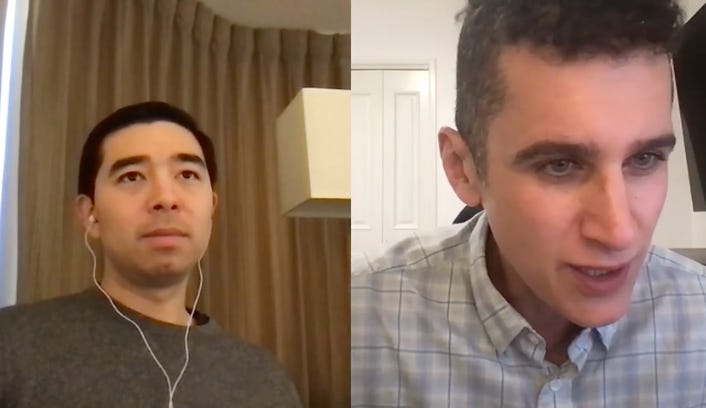
Rob joins me to talk about our experiences growing up poor, or poorish, with a focus on what race relations were like.
For some context, I’m 38 and spent my childhood in one of the less nice suburbs of Chicago, while he’s 34 and was raised in rural California. Both of us mostly hung out around people who didn’t end up going to college and had prole habits, ideas, and interests. My family had some money but like many immigrants they didn’t spend it on moving to a nice school district, so I grew up with the lower-class American experience.
We discuss racial tensions in our schools, whether kids we grew up with were just uncomfortable with gay people or actively hated them, dating across color lines, and much more.
Over the years I’ve come to realize that everybody is in something of a bubble. When I was growing up among the proles, I had a lot of misconceptions about what those at different socioeconomic levels were like, and more educated Americans are just as clueless about those at the middle or bottom. Rob and I came of age at about the same time, in communities that were majority white and non-college educated. Nonetheless, there was a lot more anti-blackness and anti-gayness where I lived, while these attitudes appear to have been less prevalent in Red Bluff. Maybe this is a California thing, as regional differences seem to matter a lot. Our divergent experiences reflect only a slight portion of the variation that exists across the United States, as neither of us has spent time in say Appalachia or the Deep South.
We tell stories about the gay kid that Rob knew who was once the only one with the courage to say the “n word,” the Muslim girl at my school who one day took off her hijab and caused the boys to lose their minds, the Christian Arab girl whose family swore to kill her if she ever slept with a boy, and Rob’s only experience with the trans movement. The first of these causes us to reflect on the 1990s and 2000s as the era of a more masculine liberalism, which joyously mocked those who felt harmed by words, whether incantations to Satan or racial slurs. Near the end, we get to wiggers versus cowboys, and how Trump has shifted the ways in which the people we grew up with see the political world.
This conversation motivated me to look into what happened to the town I grew up in. It went from 1% black and 5% Hispanic in 2000, to now about 7% black and 22% Hispanic. Over 5% of households speak Arabic at home, and another 15% Spanish. I was recently back and saw signs and billboards in Arabic for the first time, and a sushi restaurant, which would’ve been a very strange sight when I was a kid. There’s something truly beautiful about demographic transitions, where those willing to reproduce and take the necessary steps to better their lives by crossing a border inherit the earth. Life is about movement. Whenever you find yourself on the opposite side of the youth, you must reconsider. Those who mourn certain aspects of the past can’t push a rewind button, but must use contemporary ideas, technologies, and institutions to try and build something new.
You can watch the video or read the transcript below. Note that the transcript is AI generated and has not been checked for accuracy.
More Episodes
 2024-10-30
2024-10-30
 2024-10-15
2024-10-15
 2024-06-25
2024-06-25
 2024-04-23
2024-04-23
 2024-04-05
2024-04-05
 2024-02-16
2024-02-16
 2024-01-07
2024-01-07
 2023-12-19
2023-12-19
 2023-12-05
2023-12-05
 2023-11-21
2023-11-21
 2023-08-19
2023-08-19
 2023-07-27
2023-07-27
 2023-07-08
2023-07-08
 2023-05-30
2023-05-30
 2023-05-22
2023-05-22
Create your
podcast in
minutes
- Full-featured podcast site
- Unlimited storage and bandwidth
- Comprehensive podcast stats
- Distribute to Apple Podcasts, Spotify, and more
- Make money with your podcast
It is Free
- Privacy Policy
- Cookie Policy
- Terms of Use
- Consent Preferences
- Copyright © 2015-2024 Podbean.com






